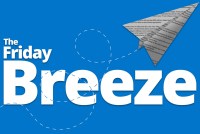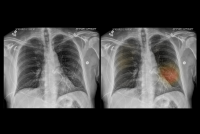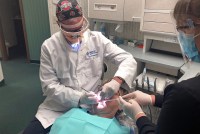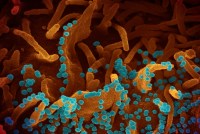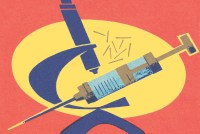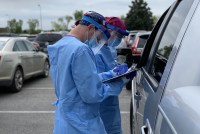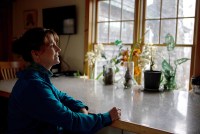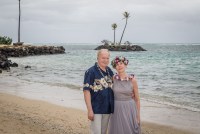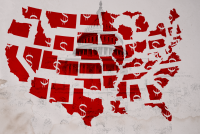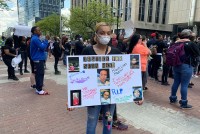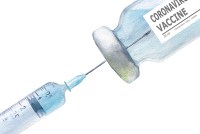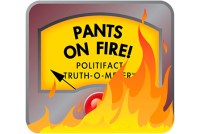Latest KFF Health News Stories
KHN executive editor Damon Darlin wades through mounds of health care policy stories — so you don’t have to.
Coronavirus Tests The Value Of Artificial Intelligence In Medicine
The pandemic offers an opportunity to use artificial intelligence programs to help doctors in COVID-19 diagnosis. But some leading hospital systems have shelved their AI technology because it wasn’t ready to roll.
The 30-Somethings Who Fled Big Cities To Shelter With Mom And Dad
Seeking comfort in the COVID outbreak is a major disruption for everyone that sometimes proves “lovely.”
Congress Said COVID-19 Tests Should Be Free — But Who’s Paying?
Some large employers interpreted themselves as exempt from new federal laws that say tests for the coronavirus should be free to patients. Large academic medical centers are holding back from sending bills to these patients to avoid a backlash over surprise billing.
KHN’s ‘What The Health?’: When It Comes To COVID-19, States Are On Their Own
Just about every state is lifting some coronavirus-related restrictions, but it’s unclear how things are really going, considering data on the spread of the virus lags and may not be reliable. Meanwhile, the federal government continues to throw more responsibility for dealing with the pandemic to state and local governments. Margot Sanger-Katz of The New York Times, Kimberly Leonard of Business Insider and Alice Miranda Ollstein of Politico join KHN’s Julie Rovner to discuss this and more.
Reopening Dental Offices For Routine Care Amid Pandemic Touches A Nerve
Most states ordered dental offices to close except for emergency patient care when the coronavirus hit the U.S. But the shutdown drilled deep into dentists’ finances, and they have been eager to reopen as states have relaxed their closures.
Scientist Has ‘Invisible Enemy’ In Sights With Microscopic Portraits Of Coronavirus
As an electron microscopist at the National Institutes of Health’s Rocky Mountain Laboratories in Montana, Elizabeth Fischer has captured stunning images of emerging pathogens such as Ebola, the MERS coronavirus and now SARS-CoV-2.
Analysis: Get Ready For The Vaccine — They’re Never Simple
Trials are an immense undertaking involving tens of thousands of participants. They’re likely to start this summer — but don’t expect quick results. And what’s a successful result, anyway?
Tennessee’s Secret To Plentiful Coronavirus Testing? Picking Up The Tab
Just about anyone who wants a coronavirus test in the state of Tennessee can get one. How? The state got buy-in and lots of participation from private labs by assuring them it will pay them.
How A Company Misappropriated Native American Culture To Sell Health Insurance
Maine investigators find one patient’s saga with O’NA HealthCare offers a cautionary tale for anyone looking for cut-rate coverage online.
To Stem COVID, This Small Indiana City Decided To Test All Public-Facing Employees
An affluent suburb looked to Iceland’s and South Korea’s widespread testing in an effort to slow the spread of the coronavirus. The method is pricey, but leaders are convinced it is worthwhile.
Fewer Traffic Collisions During Shutdown Means Longer Waits For Organ Donations
Accident deaths are typically the biggest source of donor organs nationwide. But when the coronavirus forced Californians indoors, accidents declined.
The Pandemic Is Hurting Pediatric Hospitals, Too
Children’s hospitals were generally in good shape before COVID-19, but now their revenues are plunging as beds they reserved to assist in the pandemic effort remain empty.
‘Last Responders’ Seek To Expand Postmortem COVID Testing In Unexplained Deaths
Early in the outbreak, some coroners and medical examiners didn’t have enough tests to use for people who died unexpectedly at home to see whether the coronavirus was a factor. Now, as testing gradually becomes widely available, more such mysteries could be solved.
Tourists, Beware: Foreign Visitors’ Travel Health Insurance Might Exclude Pandemics
Many travel insurance plans offer health care coverage, but they could limit how much the insurer will pay or exclude coverage for health crises like the coronavirus pandemic. That may leave foreign travelers — unfamiliar with the way the American health system works ― on the hook for major expenses.
Medicaid Providers At The End Of The Line For Federal COVID Funding
Congress authorized $100 billion for health care providers to help reimburse them for losses linked to the coronavirus pandemic. But the majority of that funding so far has gone to hospitals, doctors and other facilities that serve Medicare patients. Providers primarily serving low-income Medicaid populations and children have been largely left out.
‘An Arm And A Leg’: Angst And Advice From A Health Insurance Insider
A podcast listener who works in the health insurance industry says that when you’re trying to untangle a problem with your health insurance company ask the representative on the phone to slow down. And if need be, don’t hesitate to ask to speak with a supervisor.
In The COVID Age, Bring A Mask And Gloves To A Protest
After a police shooting in Indianapolis, activists held a protest — but, recognizing the dangers of the coronavirus in a crowd, many worked to make sure demonstrators took proper precautions.
Drugmakers Tout COVID-19 Vaccines To Refurbish Their Public Image
Vaccines and antivirals have long been an afterthought but Johnson & Johnson and other firms are widely publicizing how they might stop COVID 19.
Evidence Shows Obama Team Left A Pandemic ‘Game Plan’ For Trump Administration
There’s an actual paper trail.



